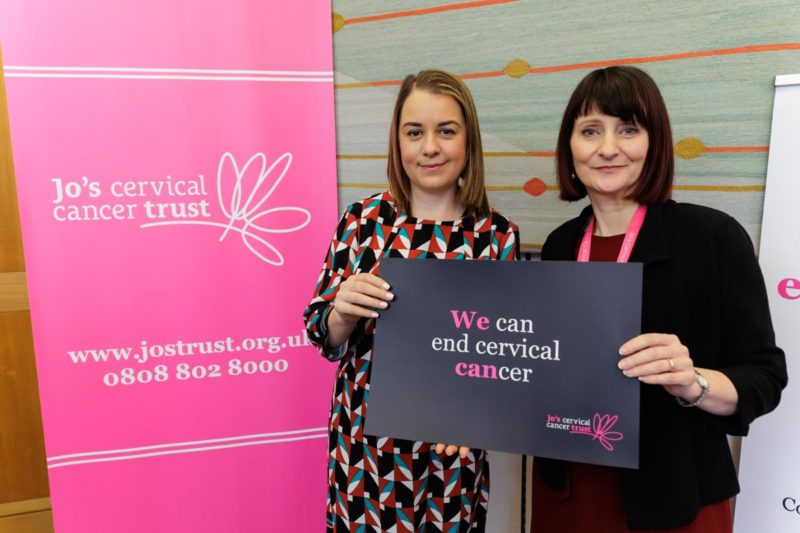Over 3,000 women in the UK are diagnosed with cervical cancer each year, and whilst 51% of these survive for 10 or more years after diagnosis, around 850 sadly die from the disease every year.
However, Cancer Research UK have found that 99.8% of all cases of cervical cancer can be prevented.
There are lots of ways to reduce your risk factor for cervical cancer, including eating a healthy diet and quitting smoking.
However, the most important preventative measures are having your HPV vaccination and attending your cervical cancer screening when contacted by your GP.
Nearly all incidences of cervical cancer are accompanied by presence of a dangerous strain of the HPV virus.
Having your HPV vaccination prevents this dangerous strain, and recent findings show that vaccinated females have seen a 90% reduction in cervical cancer.
Cervical cancer is also one of the few cancers that can be prevented through screenings – which only have to take place every three to five years.
The screening is free to women aged 25 to 64, and if any abnormalities are found, refers women for treatment before the cells have a chance to become cancer.
89 per cent of women who do develop cervical cancer will survive for five years or more after diagnosis, if it is detected early enough.
But still, more than two women each day are losing their lives to cervical cancer.
According to Jo’s Cervical Cancer Trust, only 20 per cent of people think that enough is being done to encourage uptake of the HPV vaccine, whilst only 16 per cent believe that enough is being done to support cervical screening uptake.
Less than three quarters of women attend their cervical screening when they are invited.
Despite the NHS saving an estimated 5,000 lives per year, and though the number of women attending screenings is rising, there is still more to be done.
Inequality has an impact on cervical screening uptake and cancer prevalence.
On average, women from deprived areas are more likely to suffer from cervical cancer but are 8 per cent less likely to attended their cervical screening, compared to the wealthiest parts of the country.
The Government must commit to investing in preventative measures so that everyone has equal opportunity to reduce their risk of cervical cancer, and prevent dangerous cell change before it has the chance to develop further.
I want to encourage everyone who has not yet been for a screening, who may benefit from one, to make an appointment and get their screening.
As with all cancers, if you are experiencing symptoms or if something doesn’t feel right, get in touch with your GP and check it out.
The earlier the treatment, the better the prognosis.
Let’s fight back against cervical cancer – and save lives here in Barnsley.

